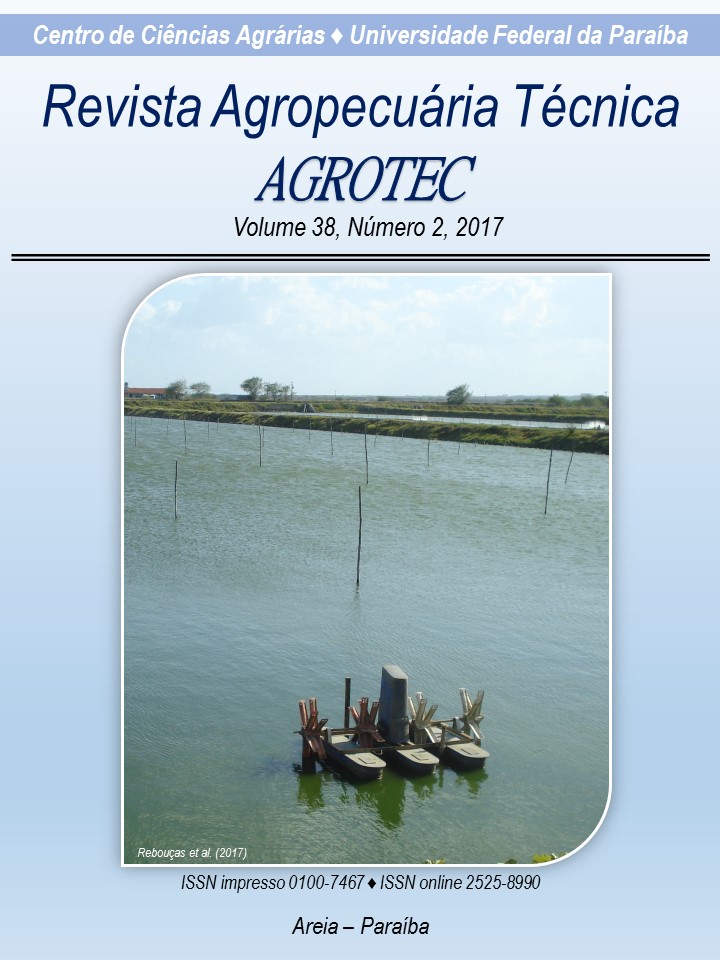Physiological quality of catanduva seeds under <i>Callosobruchus maculatus</i> (Coleoptera: Bruchidae) infestation
DOI:
https://doi.org/10.25066/agrotec.v38i2.29838Keywords:
Germination, Vigor, PredationAbstract
Seeds belonging to species of the family Fabaceaehave a high rate of predation by insects, especially the Bruchidae family. This experiment aimed to evaluate the effects of predation of the Callosobruchus maculateson germination and vigor of Pityrocarpamoniliformisseeds. The experiment was constituted of tree treatments: control (intact seeds), scarified seeds and predated seeds. The physiological quality of seeds was evaluated through the following variables: germination, germination speed index and length of seedlings. The experimental design was completely randomized with four replications of 50 seeds each. The infested seeds treatment provided lower germination percentage (5.5%), while the scarified seeds (62.5%) demonstrated higher physiological potential. The infestation of P. moniliformisseeds by C. maculatosincrease the mortality of seeds. The damage caused by C. maculatosnegatively affects the germination and vigor of P. moniliformisseeds.


